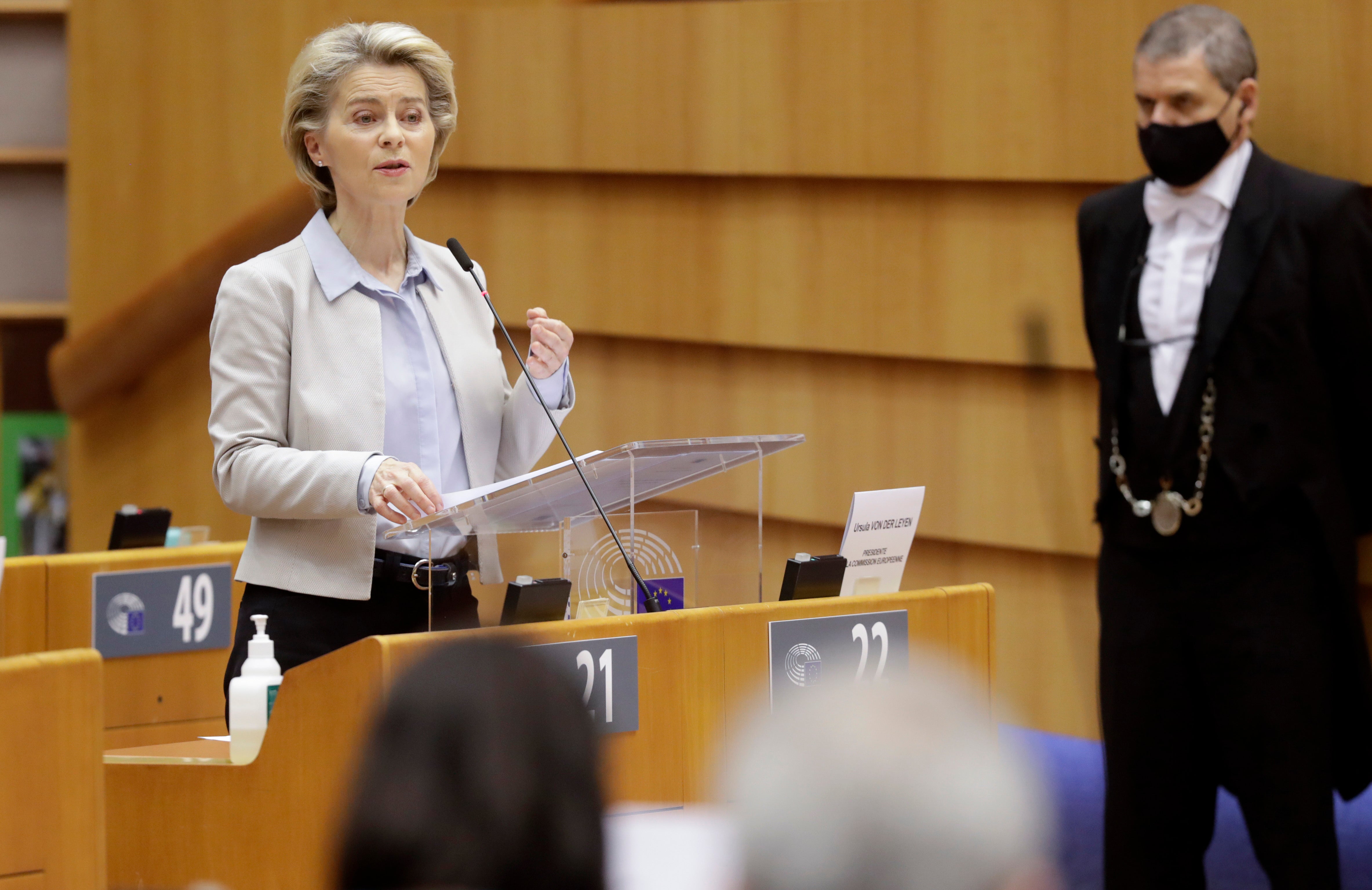EU: Poland, Hungary should ask EU top court on rule of law
The EU’s top official has advised Hungary and Poland to take their objections to a proposed mechanism linking the bloc’s money to respect of the rule of law to the European Court of Justice — instead of blocking a 1.8 trillion-euro ($2.1 trillion) budget and coronavirus recovery package

Your support helps us to tell the story
From reproductive rights to climate change to Big Tech, The Independent is on the ground when the story is developing. Whether it's investigating the financials of Elon Musk's pro-Trump PAC or producing our latest documentary, 'The A Word', which shines a light on the American women fighting for reproductive rights, we know how important it is to parse out the facts from the messaging.
At such a critical moment in US history, we need reporters on the ground. Your donation allows us to keep sending journalists to speak to both sides of the story.
The Independent is trusted by Americans across the entire political spectrum. And unlike many other quality news outlets, we choose not to lock Americans out of our reporting and analysis with paywalls. We believe quality journalism should be available to everyone, paid for by those who can afford it.
Your support makes all the difference.The EU s top official advised Hungary and Poland Wednesday to take their objections to a proposed mechanism linking the bloc's money to respect of the rule of law to the European Court of Justice — instead of blocking a 1.8 trillion-euro ($2.1 trillion) budget and coronavirus recovery package.
The deal for the big-money 2021-2027 long-term budget and aid was set to enter into force in January but Hungary and Poland vetoed it earlier this month. They object to the new mechanism that would allow the bloc to deny funds to countries that violate democratic norms, something they have been accused of doing.
Speaking at the European Parliament, Ursula von der Leyen said all 27 members agreed on the conditionality system when they met for hard-fought negotiations on the package in July.
“We are talking here about violations of the principles of the rule of law, which are now threatening the EU budget and only that,” she said. “It is very difficult to imagine anybody in Europe could possibly have anything against that principle.”
The blockage risks delaying the rollout of funds urgently needed across the continent to weather the economic impact of the health crisis.
“Anyone still in doubt has a clear path before them. They can go to the European Court of Justice and allow the new rules to be tested there,” von der Leyen said. “That is the place where differences of opinions of our legislative texts are usually settled, and that is not done at the expense of millions and millions of EU citizens who are urgently waiting for our help."
In an interview with German weekly Die Zeit, Hungarian Prime minister Viktor Orban suggested that the EU should delay the discussion about the mechanism in order to free up the pandemic aid quickly.
“The countries that are in difficulty want money quickly – let’s give them the money,” Orban was quoted as saying. “Other countries want new state-of-law rules – OK, let’s discuss it. We must do the first thing straight away, the second is less urgent.”
Orban urged the German presidency of the Council of the EU to separate the two issues.
“My little hand grenade isn’t enough for this, but the Germans could separate crisis management from the rule-of-law discussion,” he said.
___
Geir Moulson in Berlin contributed.
stop blocking